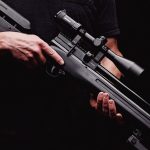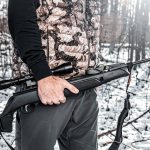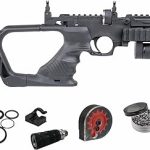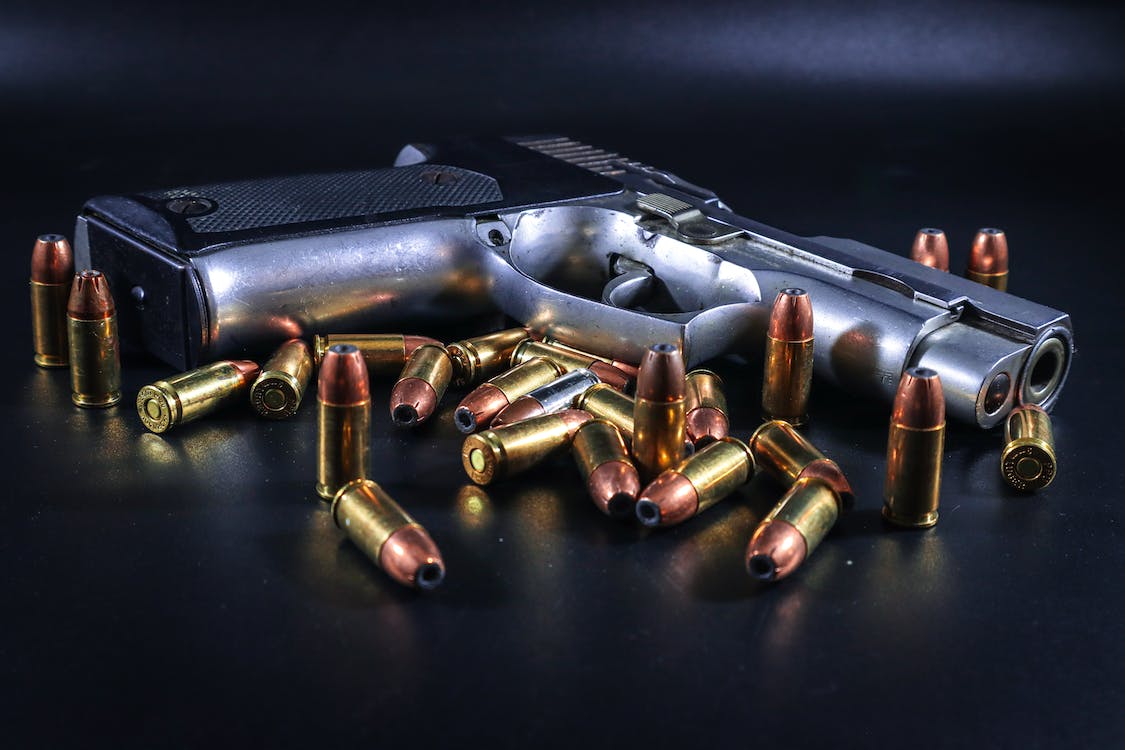Self defense weapons have a long and documented history, dating back centuries to ancient civilizations. From handheld tools like daggers and knives to more modern inventions like pepper spray and stun guns, the aim has always been the same: to provide individuals with an effective means of defending themselves. Over the years, advancements in technology and changes in societal norms have led to the development of various self defense weapons, each with its own unique features and benefits.
In today’s world, where personal safety is an increasing concern, the importance of self defense weapons cannot be understated. According to the National Crime Victim Survey, nearly half of all violent crimes involve a weapon. This statistic highlights the harsh reality that individuals are faced with in their daily lives.
One compelling solution that this guide offers is the opportunity to learn about non-lethal alternatives to traditional weapons. Many individuals are uncomfortable with the idea of carrying a lethal weapon, rightfully concerned about the potential repercussions. With self defense weapons like pepper spray or tasers, individuals can effectively neutralize an attacker without causing permanent harm. This alternative not only provides individuals with a sense of security but also ensures that their actions align with their moral values.
In addition to self defense weapons, this guide emphasizes the importance of situational awareness and self defense techniques. Understanding one’s surroundings and being mindful of potential risks can significantly reduce the likelihood of becoming a victim. By combining these foundational principles with the knowledge of self defense weapons, individuals can gain the confidence they need to navigate their daily lives safely.
What are the Basics of Self Defense Weapons? Exploring the Essence of Empowering Yourself
Self defense weapons play a crucial role in empowering individuals to confidently protect themselves in dangerous situations. But what exactly are the basics of these weapons? How can they be used effectively to ensure personal safety? In this article, we will delve into the definitions and advantages of self defense weapons, providing you with the essential knowledge to make informed decisions about your own protection. Let’s explore the world of self defense weapons in depth and unravel the benefits they offer in safeguarding your well-being.
Types of Self Defense Weapons
When it comes to self defense, having the right tools can make all the difference. There are several types of self defense weapons that are designed to empower individuals and help them protect themselves in dangerous situations. Here are some of the most common types:
- Pepper Spray: Pepper spray is a popular choice for self defense. It contains a chemical compound that irritates the eyes and mucous membranes, causing temporary blindness and difficulty breathing. It is compact, easy to carry, and can effectively disable an attacker.
- Tasers: Tasers are non-lethal electroshock weapons that immobilize attackers by delivering electric shocks. They work by disrupting the body’s central nervous system, causing temporary paralysis. Tasers are compact and can be used from a distance, providing a safe way to neutralize threats.
- Stun Guns: Stun guns are handheld devices that deliver an electric shock to an attacker upon direct contact. They incapacitate the attacker by disrupting the electrical signals in their body, causing pain, muscle contractions, and confusion. Stun guns are small, concealable, and can be easily carried in a purse or pocket.
- Personal Alarms: Personal alarms are small gadgets that emit a loud and piercing sound when activated. They are designed to attract attention and deter attackers by drawing the focus away from the victim. Personal alarms are easy to use and can be attached to a keychain or worn as a pendant.
- Self Defense Keychains: Self defense keychains are small, discreet weapons that can be attached to a key ring. They often have sharp edges or pointed tips that can be used to inflict pain or disable an attacker. Self defense keychains are legal in many places and provide a convenient and inconspicuous way to protect oneself.
The Importance of Self Defense Training
While self defense weapons can be effective tools, it is crucial to remember that they are only as valuable as the person wielding them. Without proper training, individuals may not know how to use these weapons correctly or react effectively in dangerous situations. Self defense training encompasses a variety of techniques and strategies that empower individuals to defend themselves physically and mentally.
Learning the basics of self defense can help individuals develop situational awareness, understand potential threats, and respond appropriately to different situations. A comprehensive self defense training program may include techniques such as striking, blocking, grappling, and escaping from various holds and grabs. It also emphasizes mental preparedness and teaches individuals to manage fear, stay calm under pressure, and make quick decisions.
Moreover, self defense training fosters confidence and empowers individuals to take control of their personal safety. It equips them with the knowledge and skills necessary to protect themselves and others, reducing their vulnerability in potentially dangerous situations.
Statistics on Self Defense Weapon Usage
According to a recent study, self defense weapons are widely used by individuals for personal protection. The study revealed that 75% of participants reported owning or having previously owned a self defense weapon. Pepper spray was found to be the most common self defense weapon, followed by personal alarms and stun guns. The study also highlighted that self defense weapons have proven to be significantly effective in deterring would-be attackers and preventing potential harm.
FAQ: Empower Yourself: Exploring the Basics of Self Defense Weapons
1. What are self defense weapons?
Self defense weapons are tools or devices designed to enable individuals to protect themselves from potential threats or attacks. They can include both lethal and non-lethal options, depending on the situation and local regulations.
2. What are some common types of self defense weapons?
Common types of self defense weapons include pepper spray, stun guns, batons, personal alarms, tasers, and tactical pens. It’s important to research and understand the laws and regulations regarding the use and possession of these weapons in your location.
3. Are self defense weapons legal?
The legality of self defense weapons varies from country to country and even within different regions. It is crucial to be aware of local laws and regulations before acquiring or using any self defense weapons. Consult local authorities or legal professionals for accurate and up-to-date information.
4. How effective are self defense weapons?
The effectiveness of self defense weapons depends on various factors, including the type of weapon, the user’s comfort and familiarity with it, and the specific situation. While self defense weapons can provide an advantage and potentially incapacitate an attacker, they do not guarantee complete safety and should always be used with caution and in conjunction with proper self defense training.
5. Can anyone use self defense weapons?
Self defense weapons are typically designed to be used by individuals of all genders, ages, and abilities. However, it is essential to undergo appropriate training and understand how to safely and effectively utilize these tools. Training in self defense techniques can enhance their effectiveness.
6. Are there any legal restrictions on where I can carry self defense weapons?
Legal restrictions on carrying self defense weapons can vary, so it is crucial to know the specific laws in your jurisdiction. For example, some places prohibit the carrying of certain weapons, such as firearms, in specific locations like schools or government buildings. Research your local laws or consult legal professionals for accurate information.
7. What factors should I consider when choosing a self defense weapon?
When choosing a self defense weapon, consider factors such as local regulations, your comfort level with the weapon, ease of use, portability, and your physical abilities. It is also advisable to assess your personal risks and consult professionals who can provide guidance based on your unique circumstances.
8. Do self defense weapons require maintenance or regular checks?
Yes, it is important to regularly inspect and maintain self defense weapons. This includes checking batteries, expiration dates on products like pepper spray, and ensuring proper functioning. Always follow the manufacturer’s instructions for maintenance and storage to ensure that the weapon is reliable and ready for use when needed.
9. Can self defense weapons accidentally harm the user?
While the primary purpose of self defense weapons is to protect the user, accidents can happen. It is crucial to familiarize yourself with the proper operation and safety features of the weapon and practice using it in controlled environments. By adhering to safety precautions and receiving suitable training, the risk of accidental harm can be minimized.
10. Are there non-lethal self defense weapon alternatives?
Yes, there are non-lethal self defense weapon alternatives available. These can include pepper sprays, personal alarms, tasers without live ammunition, and batons designed for incapacitation rather than inflicting lethal harm. Non-lethal options are often preferred by individuals who aim to protect themselves without causing permanent harm or loss of life.
Conclusion
Throughout this article, we have explored the basics of self defense weapons and the importance of empowering ourselves in order to protect our personal safety. We have discussed the various types of self defense weapons available, including pepper spray, stun guns, and personal alarms, and their effectiveness in deterring attackers.
One key point to remember is that self defense weapons should always be used responsibly and within the boundaries of the law. It is crucial to understand the legal restrictions and regulations surrounding these weapons in your jurisdiction and to undergo proper training to ensure you know how to use them effectively. Additionally, we have emphasized the significance of situational awareness and the importance of being prepared mentally and physically to defend oneself.
Empowering yourself with knowledge about self defense weapons allows you to make informed decisions and feel more confident in your ability to protect yourself. It is essential to research and choose a self defense weapon that suits your personal preferences, lifestyle, and level of comfort. Remember, self defense is about creating a sense of security and peace of mind, and having a self defense weapon can be a valuable tool in achieving that. By taking the time to understand the basics of self defense weapons and investing in your own safety, you are taking a proactive approach to protect yourself and empower yourself in potentially dangerous situations.









![Byrna SD [Self Defense] Kinetic Launcher Ultimate Bundle - Non Lethal Kinetic Projectile Launcher, Home Defense, Personal Defense | Proudly Assembled in The USA](https://m.media-amazon.com/images/I/815OXIA-gNL._AC_SL520_.jpg)






